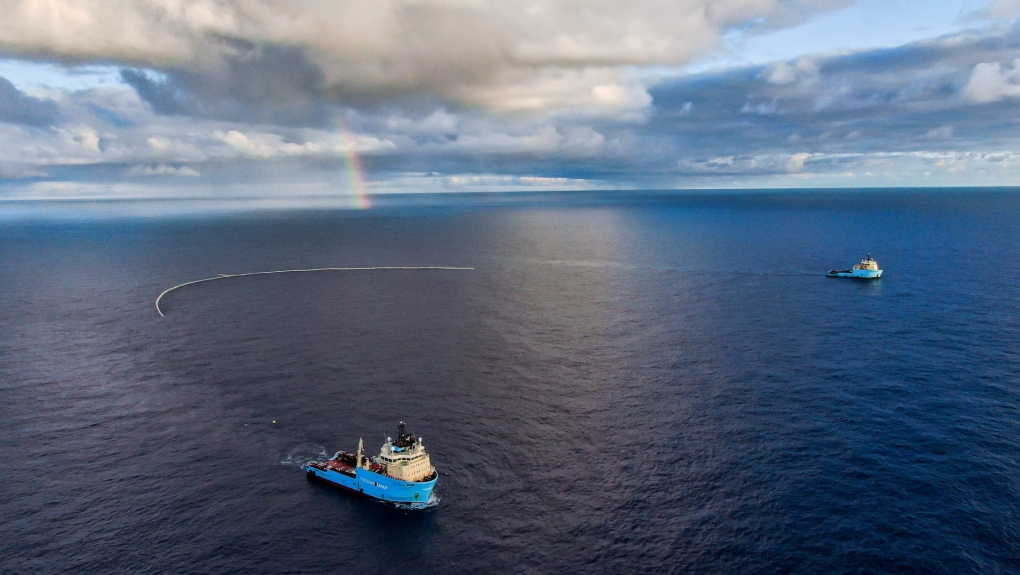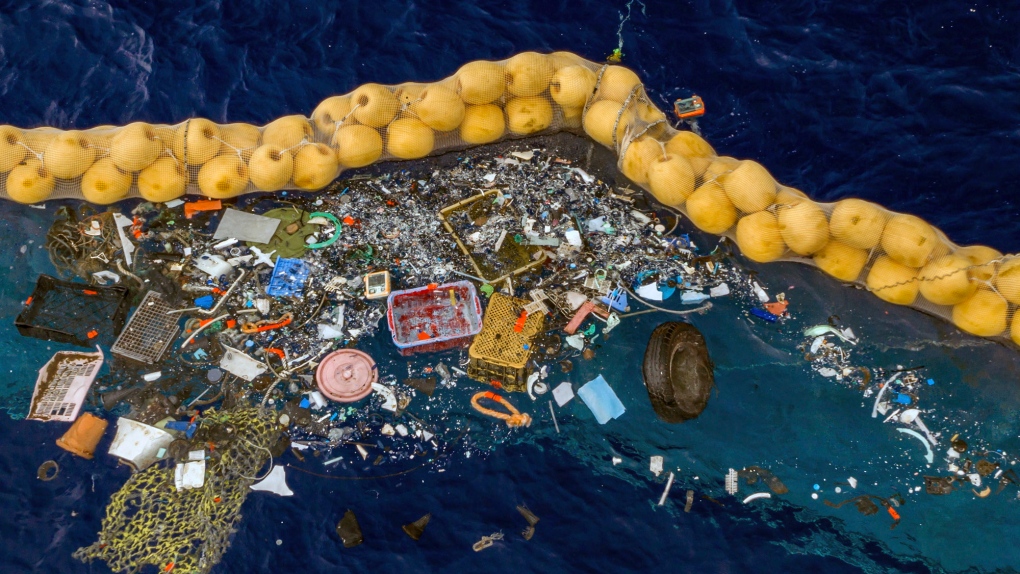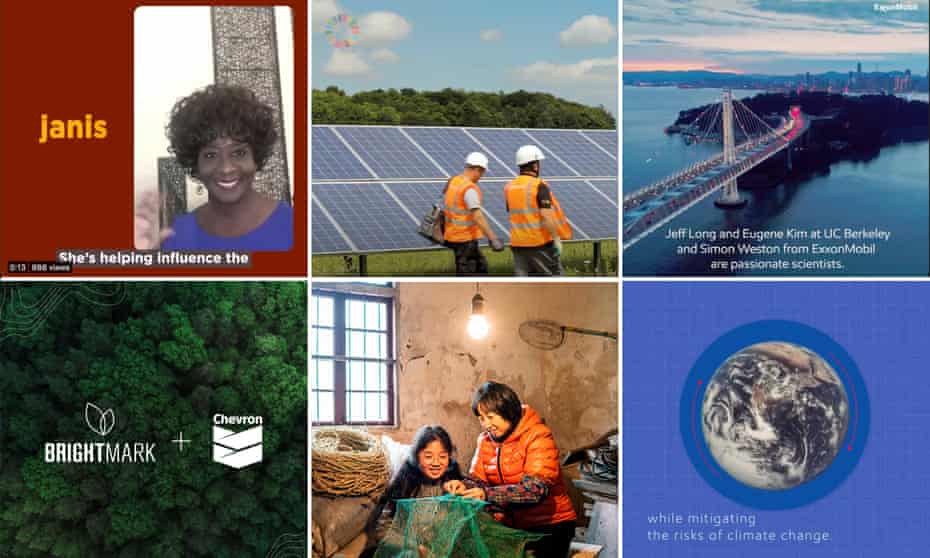Wed., September 8, 2021,

A climate change rally held in London in February 2019. Environmentalists in Cape Breton says there has not been enough discussion on the federal election campaign trail about important environmental issues. (Shutterstock / Ben Gingell - image credit)
A Cape Breton group says there's been little discussion about the environment during the federal election campaign despite reaching a critical point in the fight against the impacts of climate change.
"It's eerily silent. Eerily silent," said Janet Bickerton, a member of Cape Breton's Climate Change Task Force.
"I'm just amazed at how little conversation there is about climate. I just think it's so overwhelming."
The task force was formed last November and is made up of individuals and organizations concerned about environmental degradation.
'We need to say what matters to us'
Bickerton said many people are feeling anxious about the impacts of climate change to the point that they're blocking it out of their minds.

Erin Pottie/CBC
"It's almost so big that people feel muted, that you barely hear a conversation about it," she said.
"That is really most concerning because what we have is our voice ... We have power in our voices, but we need to come together. We need to speak and we need to say what matters to us."
Pushing for discussion
Group members want the climate to be prioritized in the lead-up to the Sept. 20 vote.
Bickerton said eligible voters should dig into how political parties plan to tackle environmental issues, and use that information to inform their choice at the ballot box.
"[For] most people in my generation, eco-anxiety has been second nature to us," said task force co-ordinator Suvir Singh, who is in his early 30s.
"We've been overloaded with information about how climate change is really affecting our lives and a lot of us don't have the platform to do a lot about it."
Rally planned for Friday
Singh said people who want action on climate change can attend a rally planned for downtown Sydney on Friday. It is scheduled to begin at 4 p.m. AT outside the Civic Centre.
The executive director of ACAP Cape Breton, a Sydney-based environmental non-profit, said the island is already seeing the impacts of climate change.
Kathleen Aikens said the rally follows an August report from the Intergovernmental Panel on Climate Change that was later described by the United Nations' secretary general as a "code red for humanity."
Panel experts warn that continued sea level rise is already irreversible for centuries to millennia, but there is still time to lessen climate impacts.
"We are facing sea level rise at nearly twice the rate of the average global sea rise," said Aikens.
"We are facing extreme weather events like storms, flash flooding and major precipitation events. There's also coastal erosion both from these extreme weather events as well as a lack of sea ice."
Acting before it's too late
Task force member Albert Marshall said now is the time for governments to find solutions before time runs out for future generations.
The Mi'kmaw elder suggested the province develop a land-based training program in public schools where young people spend more time in nature.
"We have to somehow find a way to amplify our voices by reminding the government and the policymakers that we have actually exhausted the current capacity of the system," Marshall said.
"We have reached a point of no return."
Wed., September 8, 2021,

People attending a rally in downtown Regina on Wednesday demanded federal party leaders make climate change action a priority. (Matthew Howard/CBC - image credit)
Michelle Brass says she no longer wants promises from politicians about addressing climate change. She's looking for "real commitment to real action starting immediately."
Brass was one of about 100 people who gathered in downtown Regina on Wednesday to call on federal leaders to make climate change action a top priority heading into the election.
The rally was one of about 60 that were scheduled to take place around the country ahead of the leaders debates.
People from several groups including Fridays for Future, Regina EnviroCollective and Indigenous Climate Action spoke at the event in Regina.
Brass, who's part of Indigenous Climate Action and was one of the speakers, told CBC News she wants a detailed plan on how leaders would address climate change in a variety of sectors.
"We need to be hearing about how we make decisions when it comes to addressing the climate crisis through our economy, through our education, through health care, through environmental protections, through all areas of life," she said.
"We can't have incremental change. What is required right now is a comprehensive plan that impacts all facets of life, and no effective climate policy or action can be effective if it doesn't encapsulate all elements of life in society, because it requires such drastic change."

Matt Howard/CBC
Another emphasis of the rally was to stop fossil fuel expansion and have a robust plan to transition to renewable energy.
Josh Campbell, a member of Regina Energy Transition and Wascana Solar Co-operative who also spoke at the event, said any plan needs to support people who work in the fossil fuel industry while ensuring everyone has access to renewable energy.
"It's important for us to think about the workers and the people who are in industry and need to change industries and — at the same time — consider folks who might be left behind in an energy transition," he said.
"Some of these renewables are costly and so government needs to support programs that will help everyone transition."
In the meantime, Campbell said one way to cut down on emissions and help lower income people is for the city to provide fare-free public transit.
Brass, agreed that a plan needs to support fossil fuel workers during the transition, but also said there needs to be an emphasis on Indigenous sovereignty and land protection, which she said often comes as an afterthought.
"When we're looking at how we restructure society… that must always include indigenous sovereignty and the way we operate our lands and territories."
Protesters in Vancouver demand federal candidates make climate crisis a top priority
Wed., September 8, 2021

Khalid Boudreau was among the crowd of climate activists at Wednesday's rally at Hamilton Street and West Georgia in downtown Vancouver.
Dozens of people at a protest in downtown Vancouver Wednesday called on candidates in the Sept. 20 federal election to make the climate crisis a priority.
Khalid Boudreau, 22, was among the all-ages crowd at Hamilton Street and West Georgia to demand the government take swift action. He says witnessing this summer's unprecedented heat waves created a bleak picture.
"It's scary. You have these overlapping crises ... the heat wave killing hundreds of people, then there's affordability issues, the climate crisis and of course the pandemic. It's only going to get worse, if we don't act now," Boudreau said with emotion.
Esmé Decker, 19, is a University of British Columbia student who says this will be the first federal election in which she is eligible to vote.
"With the recent air quality issues and climate change hitting close to home, it has made it even more pressing for me to get involved and make sure everybody is making climate a priority," says Decker. "It's about making sure our voices are heard and showing politicians, climate change is an issue that matters to people."

Maggie MacPherson/CBC
Connor Roff is one of the organizers of Wednesday's Canada on Fire Day of Action.
"The main thing is to not allow yourself to feel hopeless and helpless. We really want to put climate action at the forefront of every political party's campaign. Canada is literally on fire. We have to put a stop to it," says Roff.
Protestors at the rally say they will keep politicians accountable for the promises they make.

Maggie MacPherson/CBC
Canada's political parties climate change plans
Canada's six major parties have all proposed climate change plans within their election platforms.
The Liberals, claim that with a national price on carbon and other measures, they can cut Canada's greenhouse gas emissions by 40 to 45 per cent below 2005 levels, by 2030. They have pledged to ensure the oil and gas sector cuts emissions at the pace required to hit net-zero in 2050.
The Conservatives opposed the Liberals' net-zero emissions legislation and say their climate plan will meet Paris climate commitments of 30 per cent below 2005 levels, by 2030.
New Democrats supported the Liberals' net-zero legislation and have set an emissions reduction target of 50 per cent below 2005 levels, by 2030.
The Bloc Québécois says it wants to meet and exceed the Paris climate agreement targets, redirect unspent money on the Trans Mountain pipeline to renewable projects, and compel provinces that have emissions higher than the national average to pay into a "green equalization" fund, to be distributed to provinces with less pollution.
The Green Party wants to slash greenhouse gas emissions by 60 per cent below 2005 levels, by 2030, and says it will create "clear" and "enforceable" targets and timelines by 2023. If elected, the party would cancel pipeline projects, ban fracking and put tariffs on imports from countries with weak climate policies.
The People's Party argues that there is "no scientific consensus" that human activity is driving climate change and has said warnings of looming environmental catastrophe are exaggerated. The party would withdraw Canada from the Paris climate accord and abandon what it calls "unrealistic" targets to reduce greenhouse gas emissions.

Maggie MacPherson/CBC
Worried for the future
Looking down at her young son with tears in her eyes, Christina Reed said if the government does not act soon, there will be no future for him.
"There is no point in hanging our heads, saying we've always done it this way or nothing can change. It is the most important issue for the election coming up, and it's not getting the attention it deserves. Without a planet, we don't have anything."
Following the rally, protestors marched down Hamilton street, waving their signs and chanting for change.
British Columbians were just one of 60 communities to join in the day of action, ahead of the federal party leaders' official election debates on Wednesday and Thursday nights..










.png)












